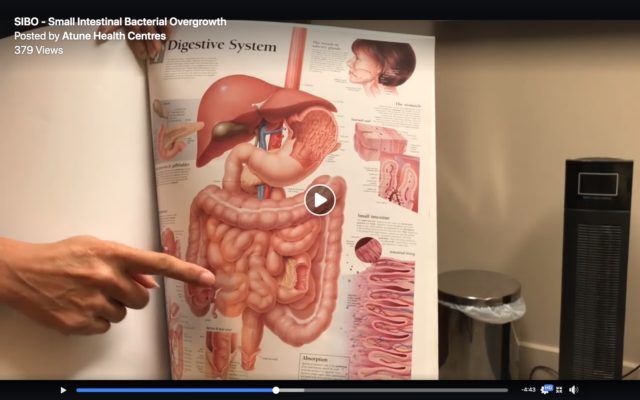

What are the symptoms of small bowel bacterial overgrowth?Ībdominal bloating, pain, cramps, gassiness, diarrhea, fatty stools and weight loss are all potential symptoms of small bowel bacterial overgrowth.

Complications of surgery can also lead to small bowel bacterial overgrowth. Small bowel bacterial overgrowth typically occurs as a complication of certain medical conditions such as Crohn’s disease, diabetes, AIDs and other immune disorders, problems with the motility of the intestinal tract, and others. What causes small bowel bacterial overgrowth? But when these bacteria proliferate in larger-than-usual numbers and cause problems, it’s known as small bowel bacterial overgrowth.

Some amounts of bacteria present in the small intestine is normal and healthy for its proper function. What is small bowel bacterial overgrowth? However, fermenting carbohydrate luminal bacteria do not interfere with thyroid hormone levels.Also known as: small intestinal bacterial overgrowth, SIBO. Bacterial overgrowth decontamination is associated with improved gastrointestinal symptoms. Excess bacteria could influence clinical gastrointestinal manifestations. The history of overt hypothyroidism is associated with bacterial overgrowth development. Thyroid hormone plasma levels were not significantly affected by successful bacterial overgrowth decontamination. These symptoms significantly improved after antibiotic decontamination. Abdominal discomfort, flatulence, and bloating were significantly more prevalent in the bacterial overgrowth positive group. The difference was statistically significant (P < 0.001). As the cartoon pictures shows, people with SIBO feel bloated ALL THE TIME and. In this condition, the bacteria, which should normally be in your colon, inappropriately move into the small intestine where they can cause a myriad of uncomfortable digestive symptoms. It can cause painful gas, bloating, nausea, belching and other systemic symptoms. A glucose breath test, gastrointestinal symptoms, and thyroid hormone plasma levels were reassessed 1 month after treatment.Ī total of 27 patients with a history of hypothyroidism demonstrated a positive result to the breath test (27 of 50, 54%), compared with two in the control group (two of 40, 5%). Struggling with gas, constipation, or diarrhea You may have a condition known as Small Intestinal Bacterial Overgrowth, or commonly known as SIBO. Bacterial overgrowth positive patients were treated with 1,200 mg rifaximin each day for a week. SIBO is broadly defined as the excessive growth of bacteria in the small intestine. Diagnosis of bacterial overgrowth was based on positivity to a hydrogen glucose breath test. One of the conditions that may be considered for such a nonspecific presentation of symptoms is SIBO, small intestinal bacterial overgrowth, a concept that has gained popularity on the internet in addition to certain clinical and research circles. The aims of the present study were to assess the prevalence and clinical pattern of bacterial overgrowth in patients with a history of overt hypothyroidism and the effects of bacterial overgrowth decontamination on thyroid hormone levels.Ī total of 50 consecutive patients with a history of overt hypothyroidism due to autoimmune thyroiditis was enrolled. Luminal bacteria could modulate gastrointestinal symptoms and interfere with levothyroxine absorption. Small Intestinal Bacterial Overgrowth Symptoms in Irritable Bowel Syndrome Ndrome. SIBO, also known as small bowel bacterial overgrowth (SBBO), refers to a condition in which abnormally large numbers of bacteria are present in the small. Intestinal motor dysfunction associated with hypothyroidism could predispose to bacterial overgrowth. eradicating SIBO and on the symptoms, in patients with IBS. Small intestinal bacterial overgrowth is defined as an abnormally high bacterial population level in the small intestine.


 0 kommentar(er)
0 kommentar(er)
